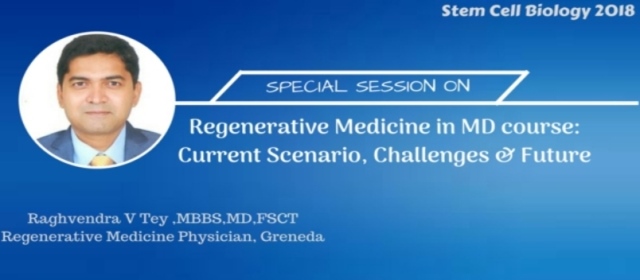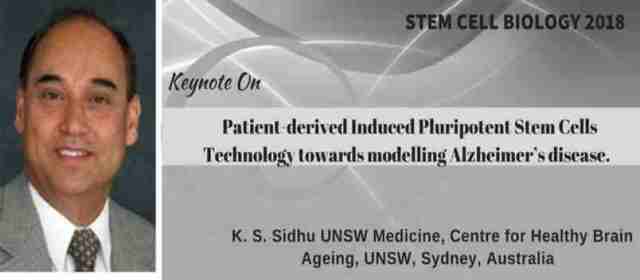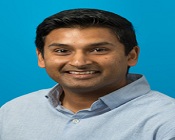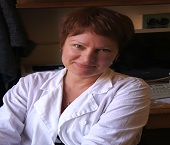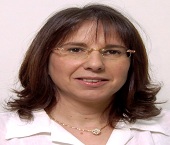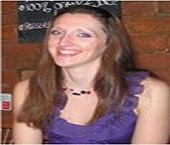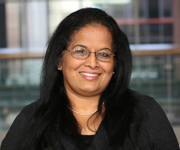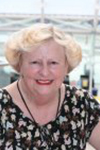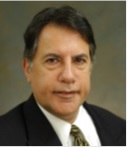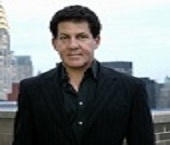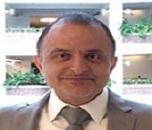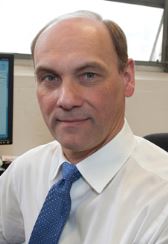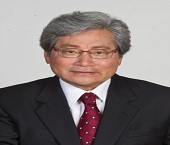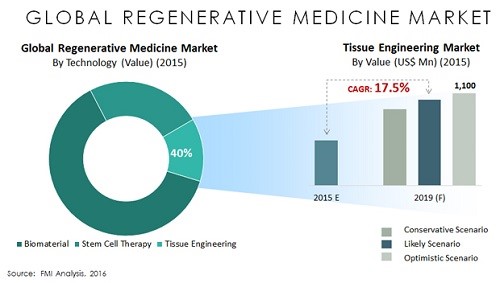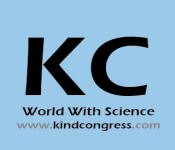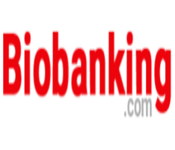Theme: Novel Insights in Stem Cell and Bio-banking
Stem Cell Biology 2018
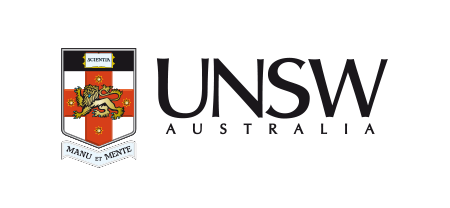
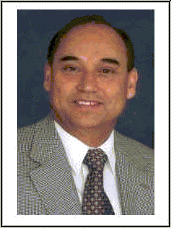
Dear Colleagues,
Being an Organizing Committee member, it is my great honor and pleasure to invite you to participate in “World Congress on Stem Cell and Biobanking” to be held in Tokyo Japan, on September 3-4, 2018. The first noble prize in Stem Cells Field originated from Japan 2012.
Stem Cell Biology 2018 brings together domain experts, researchers, clinicians, industry representatives, postdoctoral fellows, and students from around the world, providing them with the opportunity to report, share, and discuss scientific questions, achievements, and challenges in this field.
One of our aim is to generate new investigations and collaboration between scientists. We also are very interested to welcome students and postdoctoral researchers in order to provide them the opportunity to show their investigations and promote new frontiers of science in stem cell field.
We hope that this conference will be productive and satisfying. Personally, I hope that you will have a very enjoyable and entertaining stay here, in Tokyo

A/ Professor Kuldip Sidhu
Faculty of Medicine
Centre for Healthy Brain Ageing
UNSW, Sydney NSW 2152
Co-founder and Director,
CK Cell Technologies Pty Ltd
Sydney NSW 2154
Conference series llc LTD cordially invites all the scholars from all over world to attend and present their respective scientific research at “11th World Conference On Stem Cell And Biobanking” during September 3-4, Tokyo, Japan which includes prompt Keynote presentations, Oral talks, Poster presentations, Delegate views and Exhibitions.
Theme: “Novel Insights In Stem Cell And Biobanking’’
World conference on Stem Cell Biology 2018 aims in providing premier interdisciplinary platform for researchers, practitioners and educators to present and discuss the most recent innovations, trends, and concerns as well as practical challenges encountered and solutions adopted in the fields of Stem Cell Biobanking.
Track 1. Stem cells
Stem cells are characterized by the ability to self-renew, or divide without senescing, and to differentiate into specialized somatic cells. Stem cells have the ability to differentiate into specific cell types. The two defining characteristics of a stem cell are perpetual self-renewal and the ability to differentiate into a specialized adult cell type. There are two major classes of stem cells: pluripotent that can become any cell in the adult body, and multipotent that are restricted to becoming a more limited population of cells. Multiple types of stem cells have been identified, including embryonic and adult stem cells. Embryonic stem cells are pluripotent and can differentiate into all cell types of the mature organism. In contrast, adult (somatic) stem cells, including hematopoietic, muscle, cardiac, neural, and mesenchymal stem cells, are thought to have limited potency, and their differentiated derivatives are generally thought to populate only the tissue of residence. More recent advances in stem cell biology have identified the transcription factors that are sufficient to reprogram somatic cells back to an undifferentiated state. These induced pluripotent stem cells, and other stem cell types, have potential uses for understanding multipotency and self-renewal, developing models of human diseases for drug and toxicology studies, and applying cell-replacement strategies for regenerative medicine.
Related Conferences: Endoderm Development and Disease conference, February 25-March 1, 2018, New Mexico, USA. From Stem Cells to Human Development conference, 25–28 Sept 2018, Massachusetts, US. iPSC-Based Disease served World Congress on Organ Transplantation and Artificial Organs conference, April 23- 24, 2018, Dubai, UAE. Tissue Science and Regenerative Medicine conference, May 10-11, 2018 Frankfurt, Germany. 20th International Conference on Epigenetics, Chromatin and Transcription Conference, 08–09 Jan 2018, Singapore. Cancer Epigenetics: New mechanisms, New therapies Conference, 10–14 Feb 2018, Breckenridge, US.
Related societies and association: Motor Neuron Diseases Association, Taiwan Society for Stem Cell Research, Danish Stem Cell Society, Stem Cell Society Singapore, Norwegian Centre For Stem Cell Research, Helmholtz Association Biobank Germany, Brain Bank for Aging Research (Japan), .
Track 2. Genetics and stem cell biology
Stem cell genomics analyzes the genomes of stem cells. The study of stem cell genomics has wide reaching implications in the study of stem cell biology and possible therapeutic usages of stem cells. Application of research in this field could lead to drug discovery and information on diseases by the molecular characterization of the pluripotent stem cell through DNA and transcriptome sequencing and looking at the epigenetic changes of stem cells and subsequent products. One step in that process is single cell phenotypic analysis, and the connection between the phenotype and genotype of specific stem cells.
Related Conferences: Endoderm Development and Disease conference, February 25-March 1, 2018, New Mexico, USA. From Stem Cells to Human Development conference, 25–28 Sept 2018, Massachusetts, US. iPSC-Based Disease served World Congress on Organ Transplantation and Artificial Organs conference, April 23- 24, 2018, Dubai, UAE. Tissue Science and Regenerative Medicine conference, May 10-11, 2018 Frankfurt, Germany. 20th International Conference on Epigenetics, Chromatin and Transcription Conference, 08–09 Jan 2018, Singapore. Cancer Epigenetics: New mechanisms, New therapies Conference, 10–14 Feb 2018, Breckenridge, US.
Related societies and association: Motor Neuron Diseases Association, Taiwan Society for Stem Cell Research, Danish Stem Cell Society, Stem Cell Society Singapore, Norwegian Centre For Stem Cell Research, Helmholtz Association Biobank Germany, Brain Bank for Aging Research (Japan), .
Track 3. Cancer stem cells
Cancer stem cells are cancer cells (tumor cells) that possess characteristics associated with normal stem cells, specifically the ability to give rise to all cell types found in a particular cancer sample. CSCs are therefore tumorigenic (tumor-forming), perhaps in contrast to other non-tumorigenic cancer cells. CSCs may generate tumors through the stem cell processes of self-renewal and differentiation into multiple cell types. Such cells are hypothesized to persist in tumors as a distinct population and cause relapse and metastasis by giving rise to new tumors. Therefore, development of specific therapies targeted at CSCs holds hope for improvement of survival and quality of life of cancer patients, especially for patients with metastatic disease.
Related Conferences: Endoderm Development and Disease conference, February 25-March 1, 2018, New Mexico, USA. From Stem Cells to Human Development conference, 25–28 Sept 2018, Massachusetts, US. iPSC-Based Disease served World Congress on Organ Transplantation and Artificial Organs conference, April 23- 24, 2018, Dubai, UAE. Tissue Science and Regenerative Medicine conference, May 10-11, 2018 Frankfurt, Germany. 20th International Conference on Epigenetics, Chromatin and Transcription Conference, 08–09 Jan 2018, Singapore. Cancer Epigenetics: New mechanisms, New therapies Conference, 10–14 Feb 2018, Breckenridge, US.
Related societies and association: Motor Neuron Diseases Association, Taiwan Society for Stem Cell Research, Danish Stem Cell Society, Stem Cell Society Singapore, Norwegian Centre For Stem Cell Research, Helmholtz Association Biobank Germany, Brain Bank for Aging Research (Japan), .
Track 4. Tissue engineering
Tissue engineering is the use of a combination of cells, engineering and materials methods, and suitable biochemical and physicochemical factors to improve or replace biological tissues. Tissue engineering involves the use of a scaffold for the formation of new viable tissue for a medical purpose. The goal of tissue engineering is to assemble functional constructs that restore, maintain, or improve damaged tissues or whole organs. Artificial skin and cartilage are examples of engineered tissues that have been approved by the FDA; however, currently they have limited use in human patients. The term regenerative medicine is often used synonymously with tissue engineering, although those involved in regenerative medicine place more emphasis on the use of stem cells or progenitor cells to produce tissues.
Related Conferences: Endoderm Development and Disease conference, February 25-March 1, 2018, New Mexico, USA. From Stem Cells to Human Development conference, 25–28 Sept 2018, Massachusetts, US. iPSC-Based Disease served World Congress on Organ Transplantation and Artificial Organs conference, April 23- 24, 2018, Dubai, UAE. Tissue Science and Regenerative Medicine conference, May 10-11, 2018 Frankfurt, Germany. 20th International Conference on Epigenetics, Chromatin and Transcription Conference, 08–09 Jan 2018, Singapore. Cancer Epigenetics: New mechanisms, New therapies Conference, 10–14 Feb 2018, Breckenridge, US.
Related societies and association: Motor Neuron Diseases Association, Taiwan Society for Stem Cell Research, Danish Stem Cell Society, Stem Cell Society Singapore, Norwegian Centre For Stem Cell Research, Helmholtz Association Biobank Germany, Brain Bank for Aging Research (Japan), .
Track 5. Stem cell therapy
Stem Cell Therapy (SCT) is the treatment of various disorders, non-serious to life threatening, by using stem cells. These stem cells can be procured from a lot of different sources and used to potentially treat more than 80 disorders, including neuromuscular and degenerative disorders. Stem cells from a donor either from cord blood or bone marrow are known to reconstitute the defective bone marrow and permanently overcome the disorder.
Degenerative disorders arise from degeneration or wear and tear of bone, cartilage, muscle, fat or any other tissue, cell or organ. This could occur due to a variety of reasons, but it's normally the process known as aging, or 'getting old' that is the biggest cause. The disorders have a slow and insidious onset but once contracted, can be long-standing, pain-staking and lifelong. These disorders can affect any organ of the body. The common degenerative disorders are diabetes, osteoarthritis, stroke, chronic renal failure, congestive cardiac failure, myocardial infarction, Alzheimer's disease, Parkinson's disease etc.
Related Conferences: Endoderm Development and Disease conference, February 25-March 1, 2018, New Mexico, USA. From Stem Cells to Human Development conference, 25–28 Sept 2018, Massachusetts, US. iPSC-Based Disease served World Congress on Organ Transplantation and Artificial Organs conference, April 23- 24, 2018, Dubai, UAE. Tissue Science and Regenerative Medicine conference, May 10-11, 2018 Frankfurt, Germany. 20th International Conference on Epigenetics, Chromatin and Transcription Conference, 08–09 Jan 2018, Singapore. Cancer Epigenetics: New mechanisms, New therapies Conference, 10–14 Feb 2018, Breckenridge, US.
Related societies and association: Motor Neuron Diseases Association, Taiwan Society for Stem Cell Research, Danish Stem Cell Society, Stem Cell Society Singapore, Norwegian Centre For Stem Cell Research, Helmholtz Association Biobank Germany, Brain Bank for Aging Research (Japan), .
Track 6. Stem cell transplantation
Stem cell transplantation, sometimes referred to as bone marrow transplant, is a procedure that replaces unhealthy blood-forming cells with healthy cells. Stem cell transplantation allows doctors to give large doses of chemotherapy or radiation therapy to increase the chance of eliminating blood cancer in the bone marrow and then restoring normal blood cell production. Researchers continue to improve stem cell transplantation procedures, making them an option for more patients.
The basis for stem cell transplantation is that blood cells (red cells, white cells and platelets) and immune cells (lymphocytes) arise from the stem cells, which are present in marrow, peripheral blood and cord blood. Intense chemotherapy or radiation therapy kills the patient's stem cells. This stops the stem cells from making enough blood and immune cells.
Related Conferences: Endoderm Development and Disease conference, February 25-March 1, 2018, New Mexico, USA. From Stem Cells to Human Development conference, 25–28 Sept 2018, Massachusetts, US. iPSC-Based Disease served World Congress on Organ Transplantation and Artificial Organs conference, April 23- 24, 2018, Dubai, UAE. Tissue Science and Regenerative Medicine conference, May 10-11, 2018 Frankfurt, Germany. 20th International Conference on Epigenetics, Chromatin and Transcription Conference, 08–09 Jan 2018, Singapore. Cancer Epigenetics: New mechanisms, New therapies Conference, 10–14 Feb 2018, Breckenridge, US.
Related societies and association: Motor Neuron Diseases Association, Taiwan Society for Stem Cell Research, Danish Stem Cell Society, Stem Cell Society Singapore, Norwegian Centre For Stem Cell Research, Helmholtz Association Biobank Germany, Brain Bank for Aging Research (Japan), .
Track 7. Stem cell niche
The stem cell niche is the in vivo microenvironment where stem cells both reside and receive stimuli that determine their fate. Therefore, the niche should not be considered simply a physical location for stem cells, rather as the place where extrinsic signals interact and integrate to influence stem sell behavior. These stimuli include cell-to-cell and cell-matrix interactions and signals (molecules) that activate and/or repress genes and transcription programs. As a direct consequence of this interaction, stem cells are maintained in a dormant state, induced to self-renewal or commit to a more differentiated state.
Related Conferences: Endoderm Development and Disease conference, February 25-March 1, 2018, New Mexico, USA. From Stem Cells to Human Development conference, 25–28 Sept 2018, Massachusetts, US. iPSC-Based Disease served World Congress on Organ Transplantation and Artificial Organs conference, April 23- 24, 2018, Dubai, UAE. Tissue Science and Regenerative Medicine conference, May 10-11, 2018 Frankfurt, Germany. 20th International Conference on Epigenetics, Chromatin and Transcription Conference, 08–09 Jan 2018, Singapore. Cancer Epigenetics: New mechanisms, New therapies Conference, 10–14 Feb 2018, Breckenridge, US.
Related societies and association: Motor Neuron Diseases Association, Taiwan Society for Stem Cell Research, Danish Stem Cell Society, Stem Cell Society Singapore, Norwegian Centre For Stem Cell Research, Helmholtz Association Biobank Germany, Brain Bank for Aging Research (Japan),
Track 8. Regenerative Medicine
Regenerative medicine is a broad field that includes tissue engineering but also incorporates research on self-healing where the body uses its own systems, sometimes with help foreign biological material to recreate cells and rebuild tissues and organs. The terms “tissue engineering” and “regenerative medicine” have become largely interchangeable, as the field hopes to focus on cures instead of treatments for complex, often chronic, diseases. This field continues to evolve. In addition to medical applications, non-therapeutic applications include using tissues as biosensors to detect biological or chemical threat agents, and tissue chips that can be used to test the toxicity of an experimental medication. Regenerative medicine includes the generation and use of therapeutic stem cells, tissue engineering and the production of artificial organs. Regenerative medicine seeks to replace tissue or organs that have been damaged by disease, trauma, or congenital issues, vs. the current clinical strategy that focuses primarily on treating the symptoms. The tools used to realize these outcomes are tissue engineering, cellular therapies, and medical devices and artificial organs.
Related Conferences: Endoderm Development and Disease conference, February 25-March 1, 2018, New Mexico, USA. From Stem Cells to Human Development conference, 25–28 Sept 2018, Massachusetts, US. iPSC-Based Disease served World Congress on Organ Transplantation and Artificial Organs conference, April 23- 24, 2018, Dubai, UAE. Tissue Science and Regenerative Medicine conference, May 10-11, 2018 Frankfurt, Germany. 20th International Conference on Epigenetics, Chromatin and Transcription Conference, 08–09 Jan 2018, Singapore. Cancer Epigenetics: New mechanisms, New therapies Conference, 10–14 Feb 2018, Breckenridge, US.
Related societies and association: Motor Neuron Diseases Association, Taiwan Society for Stem Cell Research, Danish Stem Cell Society, Stem Cell Society Singapore, Norwegian Centre For Stem Cell Research, Helmholtz Association Biobank Germany, Brain Bank for Aging Research (Japan),
Track 9. Adult stem cells
Adult stem cells, like all stem cells, share at least two characteristics. First, they can make identical copies of themselves for long periods of time; this ability to proliferate is referred to as long-term self-renewal. Second, they can give rise to mature cell types that have characteristic morphologies (shapes) and specialized functions. Typically, stem cells generate an intermediate cell type or types before they achieve their fully differentiated state. The intermediate cell is called a precursor or progenitor cell. Progenitor or precursor cells in fetal or adult tissues are partly differentiated cells that divide and give rise to differentiated cells. Adult stem cells are rare. Their primary functions are to maintain the steady state functioning of a cell-called homeostasis-and, with limitations, to replace cells that die because of injury or disease.
Related Conferences: Endoderm Development and Disease conference, February 25-March 1, 2018, New Mexico, USA. From Stem Cells to Human Development conference, 25–28 Sept 2018, Massachusetts, US. iPSC-Based Disease served World Congress on Organ Transplantation and Artificial Organs conference, April 23- 24, 2018, Dubai, UAE. Tissue Science and Regenerative Medicine conference, May 10-11, 2018 Frankfurt, Germany. 20th International Conference on Epigenetics, Chromatin and Transcription Conference, 08–09 Jan 2018, Singapore. Cancer Epigenetics: New mechanisms, New therapies Conference, 10–14 Feb 2018, Breckenridge, US.
Related societies and association: Motor Neuron Diseases Association, Taiwan Society for Stem Cell Research, Danish Stem Cell Society, Stem Cell Society Singapore, Norwegian Centre For Stem Cell Research, Helmholtz Association Biobank Germany, Brain Bank for Aging Research (Japan),
Track 10. Embryonic stem cells
Embryonic stem cells are obtained from the inner cell mass of the blastocyst. They can give rise to every cell type in the fully formed body, but not the placenta and umbilical cord. These are incredibly valuable because they provide a renewable resource for studying normal development and disease, and for testing drugs and other therapies. Human embryonic stem cells have been derived primarily from blastocysts. Embryonic stem cells possess the capacity to divide for long periods and retain their ability to make all cell types within the organism. These are termed pluripotent stem cells. The undifferentiated embryonic stem cells are next stimulated to differentiate into the desired type of cell. For this, the cells are allowed to clump together to form embryoid bodies. This helps them differentiate spontaneously. They make nerve cells, heart cells, brain cells, muscle cells and other types of cells.
Related Conferences: Endoderm Development and Disease conference, February 25-March 1, 2018, New Mexico, USA. From Stem Cells to Human Development conference, 25–28 Sept 2018, Massachusetts, US. iPSC-Based Disease served World Congress on Organ Transplantation and Artificial Organs conference, April 23- 24, 2018, Dubai, UAE. Tissue Science and Regenerative Medicine conference, May 10-11, 2018 Frankfurt, Germany. 20th International Conference on Epigenetics, Chromatin and Transcription Conference, 08–09 Jan 2018, Singapore. Cancer Epigenetics: New mechanisms, New therapies Conference, 10–14 Feb 2018, Breckenridge, US.
Related societies and association: Motor Neuron Diseases Association, Taiwan Society for Stem Cell Research, Danish Stem Cell Society, Stem Cell Society Singapore, Norwegian Centre For Stem Cell Research, Helmholtz Association Biobank Germany, Brain Bank for Aging Research (Japan),
Track 11. Stem cell apoptosis and signal transduction
Self renewal and proliferation of stem cell populations is controlled, in part, by induction of apoptosis. The number of stem cells is therefore a balance between those lost to differentiation / apoptosis and those gained through proliferation. Apoptosis of stem cells is believed to be a dynamic process which changes in response to environmental conditions. For example, the release of stem cell factor inhibits apoptosis following spinal cord injury, presumably in an attempt to promote tissue repair. Dysregulation of apoptosis in stem cells is believed to underlie some cancer pathologies, where apoptotic resistance results in uncontrolled growth (i.e. glioblastoma). Controlling apoptosis is also an important focus for studies of stem cell transplantation, where inhibition may increase the survival of grafted cells during replacement therapy. Harnessing the full therapeutic potential of stem cells will require full elucidation of the signal transduction cascades for proliferation, differentiation, and apoptosis.
Related Conferences: Endoderm Development and Disease conference, February 25-March 1, 2018, New Mexico, USA. From Stem Cells to Human Development conference, 25–28 Sept 2018, Massachusetts, US. iPSC-Based Disease served World Congress on Organ Transplantation and Artificial Organs conference, April 23- 24, 2018, Dubai, UAE. Tissue Science and Regenerative Medicine conference, May 10-11, 2018 Frankfurt, Germany. 20th International Conference on Epigenetics, Chromatin and Transcription Conference, 08–09 Jan 2018, Singapore. Cancer Epigenetics: New mechanisms, New therapies Conference, 10–14 Feb 2018, Breckenridge, US.
Related societies and association: Motor Neuron Diseases Association, Taiwan Society for Stem Cell Research, Danish Stem Cell Society, Stem Cell Society Singapore, Norwegian Centre For Stem Cell Research, Helmholtz Association Biobank Germany, Brain Bank for Aging Research (Japan),
Track 12. Computational biology in stem cells
Computational biology, a branch of biology involving the application of computer science to the understanding and modeling of the structures and processes of biology, that referred to as bioinformatics. It entails the use of computational methods for the representation and apply advanced analysis techniques that make it possible to dissect complex collections of data from a wide range of technologies and sources.
The fields of stem cell biology and regenerative medicine research are fundamentally about understanding dynamic cellular processes such as development, reprogramming, repair, differentiation and the loss, acquisition or maintenance of pluripotency. Whereas bioinformatics is used to interpret the information produced by such technologies. In order to precisely decipher these processes at a molecular level, it is critical to identify and study key regulatory genes and transcriptional circuits. Modern high-throughput molecular profiling technologies provide a powerful approach to addressing these questions as they allow the profiling of tens of thousands of gene products in a single experiment. Whereas bioinformatics is used to interpret the information produced by such technologies.
Related Conferences: Endoderm Development and Disease conference, February 25-March 1, 2018, New Mexico, USA. From Stem Cells to Human Development conference, 25–28 Sept 2018, Massachusetts, US. iPSC-Based Disease served World Congress on Organ Transplantation and Artificial Organs conference, April 23- 24, 2018, Dubai, UAE. Tissue Science and Regenerative Medicine conference, May 10-11, 2018 Frankfurt, Germany. 20th International Conference on Epigenetics, Chromatin and Transcription Conference, 08–09 Jan 2018, Singapore. Cancer Epigenetics: New mechanisms, New therapies Conference, 10–14 Feb 2018, Breckenridge, US.
Related societies and association: Motor Neuron Diseases Association, Taiwan Society for Stem Cell Research, Danish Stem Cell Society, Stem Cell Society Singapore, Norwegian Centre For Stem Cell Research, Helmholtz Association Biobank Germany, Brain Bank for Aging Research (Japan),
Track 13. Epigenetics
Epigenetics is the study of potentially heritable changes in gene expression that does not involve changes to the underlying DNA sequence - a change in phenotype without a change in genotype -which in turn affects how cells read the genes. Gene expression can be controlled through action of repressor protein that attach to silencer regions of DNA. Many types of epigenetic processes have been identified-they include methylation, acetylation, phosphorylation, ubiquitylation, and sumolyation. Other epigenetic mechanisms and considerations are likely to surface as work proceeds. Epigenetic processes are natural and essential to many organism functions, but if they occur improperly, there can be major adverse health and behavioral effects. One example of an epigenetic change in eukaryotic biology is the process of cellular differentiation. During morphogenesis, totipotent stem cells become the various pluripotent cell lines of the embryo, which in turn become fully differentiated cells. In other words, as a single fertilized egg cell - the zygote - continues to divide, the resulting daughter cells change into all the different cell types in an organism, including neurons, muscle cells, epithelium, endothelium of blood vessels, etc., by activating some genes while inhibiting the expression of others.
Related Conferences: Endoderm Development and Disease conference, February 25-March 1, 2018, New Mexico, USA. From Stem Cells to Human Development conference, 25–28 Sept 2018, Massachusetts, US. iPSC-Based Disease served World Congress on Organ Transplantation and Artificial Organs conference, April 23- 24, 2018, Dubai, UAE. Tissue Science and Regenerative Medicine conference, May 10-11, 2018 Frankfurt, Germany. 20th International Conference on Epigenetics, Chromatin and Transcription Conference, 08–09 Jan 2018, Singapore. Cancer Epigenetics: New mechanisms, New therapies Conference, 10–14 Feb 2018, Breckenridge, US.
Related societies and association: Motor Neuron Diseases Association, Taiwan Society for Stem Cell Research, Danish Stem Cell Society, Stem Cell Society Singapore, Norwegian Centre For Stem Cell Research, Helmholtz Association Biobank Germany, Brain Bank for Aging Research (Japan),
Track 14. Biobanking
A biobank is a type of biorepository that stores biological samples (usually human) for use in research. The wide array of bio specimens (including blood, saliva, plasma, and pure DNA) maintained in biobanks is delineating as libraries of the human organism. They’re rigorously characterized to see the final and distinctive options of the continual cell line and therefore the absence or presence of contaminants, thus establishing a basic understanding regarding the staple from that the biological product is being derived and maintained. Biobanks have become an important resource in medical research, supporting many types of contemporary research like genomics and personalized medicine. For example, many diseases are associated with single-nucleotide polymorphisms, and performing genome-wide association studies using large collections of samples which represent tens or hundreds of thousands of individuals can help to identify disease biomarkers. Many researchers struggled to acquire sufficient samples prior to the advent of biobanks.
Related Conferences: Endoderm Development and Disease conference, February 25-March 1, 2018, New Mexico, USA. From Stem Cells to Human Development conference, 25–28 Sept 2018, Massachusetts, US. iPSC-Based Disease served World Congress on Organ Transplantation and Artificial Organs conference, April 23- 24, 2018, Dubai, UAE. Tissue Science and Regenerative Medicine conference, May 10-11, 2018 Frankfurt, Germany. 20th International Conference on Epigenetics, Chromatin and Transcription Conference, 08–09 Jan 2018, Singapore. Cancer Epigenetics: New mechanisms, New therapies Conference, 10–14 Feb 2018, Breckenridge, US.
Related societies and association: Motor Neuron Diseases Association, Taiwan Society for Stem Cell Research, Danish Stem Cell Society, Stem Cell Society Singapore, Norwegian Centre For Stem Cell Research, Helmholtz Association Biobank Germany, Brain Bank for Aging Research (Japan),
Track 15. Biobank ethics
Ethical issues are commonly present in many aspects of Biobanking. The fact that Bio banks deal with human samples, invading an individual autonomy or limiting self-control, provokes a number of ethical issues. Who is actually competent to give informed consent and donate a sample? When individuals donate part of their body to a bio bank, how is that human sample processed? Who is the owner of the sample? Who should decide how it should be used? Who has the right to know individual results of research? These and many more ethical dilemmas exist in the ethical framework of bio banks. With the recent rapid developments in Biobanking, all of these issues are magnified with plenty of further new questions continuously arising. Ethical framework has been the most controversial issue in the domain of bio banking. Thus, it is not surprising that there is a substantial literature focusing on ethical dilemmas in bio banking, such as informed consent, privacy, protection, and returning of results to participants. For many years, researchers at CRB have provided constructive advice on how to deal with ethical aspects of research using human tissue material and personal data. For more than 80 years tissue has been derived from human bodies, stored, distributed and used for therapeutic, educational, forensic and research purposes as part of healthcare routine in most western countries.
Related Conferences: Endoderm Development and Disease conference, February 25-March 1, 2018, New Mexico, USA. From Stem Cells to Human Development conference, 25–28 Sept 2018, Massachusetts, US. iPSC-Based Disease served World Congress on Organ Transplantation and Artificial Organs conference, April 23- 24, 2018, Dubai, UAE. Tissue Science and Regenerative Medicine conference, May 10-11, 2018 Frankfurt, Germany. 20th International Conference on Epigenetics, Chromatin and Transcription Conference, 08–09 Jan 2018, Singapore. Cancer Epigenetics: New mechanisms, New therapies Conference, 10–14 Feb 2018, Breckenridge, US.
Related societies and association: Motor Neuron Diseases Association, Taiwan Society for Stem Cell Research, Danish Stem Cell Society, Stem Cell Society Singapore, Norwegian Centre For Stem Cell Research, Helmholtz Association Biobank Germany, Brain Bank for Aging Research (Japan),
Track 16. Stem cell in drug development
Stem cell therapy has opened a new avenue in the area of drug discovery and development. Biopharmaceutical companies have been working in deciphering vital applications of stem cell technologies in the drug development processes so as to reduce the high attrition rate of late stage drug candidates, which has been growing at a fast pace in the past decade. Advent of stem cell technologies has provided new prospects to build innovative cellular models. The constantly evolving methodologies used for isolation of human/animal embryonic stem cells (ESCs), bone marrow-derived mesenchymal stem cells, umbilical cord stem cells, adult tissue-specific neural stem cells and human induced pluripotent stem cells (iPSC) have led to the advancement of numerous high throughput and combinatorial screening technologies thus supplementing the role of stem cell models in drug discovery
Related Conferences: Endoderm Development and Disease conference, February 25-March 1, 2018, New Mexico, USA. From Stem Cells to Human Development conference, 25–28 Sept 2018, Massachusetts, US. iPSC-Based Disease served World Congress on Organ Transplantation and Artificial Organs conference, April 23- 24, 2018, Dubai, UAE. Tissue Science and Regenerative Medicine conference, May 10-11, 2018 Frankfurt, Germany. 20th International Conference on Epigenetics, Chromatin and Transcription Conference, 08–09 Jan 2018, Singapore. Cancer Epigenetics: New mechanisms, New therapies Conference, 10–14 Feb 2018, Breckenridge, US.
Related societies and association: Motor Neuron Diseases Association, Taiwan Society for Stem Cell Research, Danish Stem Cell Society, Stem Cell Society Singapore, Norwegian Centre For Stem Cell Research, Helmholtz Association Biobank Germany, Brain Bank for Aging Research (Japan),
Track 17. Cell and gene therapy
Cell therapy or cryotherapy is the transfer of cells into a patient with a goal of improving the disease. From beginning blood transfusions were considered to be the first type of cell therapy to be practiced as routine. Later, Bone marrow transplantation has also become a well-established concept which involves treatment of much kind of blood disorders including anemia, leukemia, lymphoma and rare immunodeficiency diseases. Gene therapy is an experimental technique that uses genes to treat or prevent disease. In the future, this technique may allow doctors to treat a disorder by inserting a gene into a patient’s cells instead of using drugs or surgery. cell and gene Therapies have made vital therapeutic advances in less than three decades. Inside this brief span traverse, both gene and cell treatments have investigated numerous ideas, created different innovations, surveyed the advances in various animal models, and tried the novel treatments in numerous human clinical trials of dreaded infections. Some energizing changes have been seen in a few infections by the medications. Although a few trials did not give the hope for advancements, every trial has propelled our comprehension of the complex interactions between various tissues and highlighted challenges for further research.
Related Conferences: Endoderm Development and Disease conference, February 25-March 1, 2018, New Mexico, USA. From Stem Cells to Human Development conference, 25–28 Sept 2018, Massachusetts, US. iPSC-Based Disease served World Congress on Organ Transplantation and Artificial Organs conference, April 23- 24, 2018, Dubai, UAE. Tissue Science and Regenerative Medicine conference, May 10-11, 2018 Frankfurt, Germany. 20th International Conference on Epigenetics, Chromatin and Transcription Conference, 08–09 Jan 2018, Singapore. Cancer Epigenetics: New mechanisms, New therapies Conference, 10–14 Feb 2018, Breckenridge, US.
Related societies and association: Motor Neuron Diseases Association, Taiwan Society for Stem Cell Research, Danish Stem Cell Society, Stem Cell Society Singapore, Norwegian Centre For Stem Cell Research, Helmholtz Association Biobank Germany, Brain Bank for Aging Research (Japan),
Track 18. Stem cell biomarkers
Bio marker is a biological molecule found in blood, other body fluids, or tissues that is a sign of a normal or abnormal process, or of a condition or disease. A bio marker may be used to see how well the body responds to a treatment for a disease or condition. In cancer research and medicine, bio markers are used in three primary ways: Diagnostic, Prognostic, Predictive.
Related Conferences: Endoderm Development and Disease conference, February 25-March 1, 2018, New Mexico, USA. From Stem Cells to Human Development conference, 25–28 Sept 2018, Massachusetts, US. iPSC-Based Disease served World Congress on Organ Transplantation and Artificial Organs conference, April 23- 24, 2018, Dubai, UAE. Tissue Science and Regenerative Medicine conference, May 10-11, 2018 Frankfurt, Germany. 20th International Conference on Epigenetics, Chromatin and Transcription Conference, 08–09 Jan 2018, Singapore. Cancer Epigenetics: New mechanisms, New therapies Conference, 10–14 Feb 2018, Breckenridge, US.
Related societies and association: Motor Neuron Diseases Association, Taiwan Society for Stem Cell Research, Danish Stem Cell Society, Stem Cell Society Singapore, Norwegian Centre For Stem Cell Research, Helmholtz Association Biobank Germany, Brain Bank for Aging Research (Japan),
Track 19. Stem cell nanotechnology
Human beings suffer from a myriad of disorders caused by biochemical or biophysical alteration of physiological systems leading to organ failure. For a number of these conditions, stem cells and their enormous reparative potential may be the last hope for restoring function to these failing organ or tissue systems. To harness the potential of stem cells for biotherapeutic applications, we need to work at the size scale of molecules and processes that govern stem cells fate. Nanotechnology provides us with such capacity. Therefore, effective amalgamation of nanotechnology and stem cells - medical nanoscience or nanomedicine - offers immense benefits to the human race. stem cell nanotechnology research focuses on several important areas such as stem cell visualization and imaging, genetic modifications and reprogramming by gene delivery systems, creating stem cell niche, and similar therapeutic applications.
Related Conferences: Endoderm Development and Disease conference, February 25-March 1, 2018, New Mexico, USA. From Stem Cells to Human Development conference, 25–28 Sept 2018, Massachusetts, US. iPSC-Based Disease served World Congress on Organ Transplantation and Artificial Organs conference, April 23- 24, 2018, Dubai, UAE. Tissue Science and Regenerative Medicine conference, May 10-11, 2018 Frankfurt, Germany. 20th International Conference on Epigenetics, Chromatin and Transcription Conference, 08–09 Jan 2018, Singapore. Cancer Epigenetics: New mechanisms, New therapies Conference, 10–14 Feb 2018, Breckenridge, US.
Related societies and association: Motor Neuron Diseases Association, Taiwan Society for Stem Cell Research, Danish Stem Cell Society, Stem Cell Society Singapore, Norwegian Centre For Stem Cell Research, Helmholtz Association Biobank Germany, Brain Bank for Aging Research (Japan),
Hear, Explore and learn the latest research. Present before distinguished global audience. Collaborate, build partnerships and experience Japan. Join the global academic community.
Conference Series llc LTD invites all the participants across the globe to attend the 11th World Congress on Stem Cell and Biobanking during September 3-4, 2018 at Tokyo, Japan. Stem Cell Biology 2018 includes prompt keynote presentations, Oral talks, Poster presentations and Exhibitions.
Stem Cell Biology 2018 aims in proclaim knowledge and share new ideas amongst the professionals, industrialists and students from research area of Stem Cell and Biobanking to share their research experiences and indulge in interactive discussions at the event. This scientific gathering guarantees that offering the thoughts and ideas will enable and secure you the theme “Novel Insights in Stem Cell and Biobanking”. Stem Cell and Biobanking is the latest trending research in many fields especially in Organ cancer: breast, oral, head and neck Cancer Myeloid, lymphoid leukaemia’ s, cancer treatments etc. The current era fully rolled out with many new advanced treatment technologies. In such case more Stem Cells research institutes were newly introduced within market which obviously shows the market growth of Stem Cells and Biobanking. While analyzing the revenue growth of Stem Cells and Biobanking functions, it highly developed from $150 billion USD to $250 billion USD since from 2010-2015. And the annual growth percentage increases from 20-55 percentages.
Importance and Scope
Recently, there has been an increasing demand for quality and trained manpower in this evolving branch of biomedicine. As a result of this, stem cells research is emerging as a rage among the many career options available to people in associated fields. The current investment in stem cell research in India is more than 1000 crores. Most of the investment in stem cell research in India is in the government sector. So, there are a lot of research opportunities on a national front in India.
Why to attend?
With members from around the world focused on learning about Stem Cells and Biobanking, this is your single best opportunity to reach the largest assemblage of participants from the Stem cells research community. Conduct demonstrations, distribute information, acquire knowledge about current and trending Stem cells and Biobanking technologies, make a splash with a new research, and receive name recognition at this 2-day event. World-renowned speakers, the most recent techniques, tactics, and the newest updates in fields are hallmarks of this conference.
Target Audience
- Stem cell researchers and academicians
- Doctorates in Bio- Sciences
- Regenerative medicine Lab Directors/Associates
- Professors of Life sciences
- Biobanking Researchers
- Biobanking Faculty
- Medical Colleges
- Biobanking Associations and Societies
- Business Entrepreneurs
- Training Institutes
- Cryo storage Companies
- Data Management Companies
- Global Biobanking Companies
- Biobanking investors
Conference Highlights
- Stem cells
- Genetics and stem cell biology
- Cancer stem cells
- Tissue engineering
- Stem cell therapy
- Stem cell transplantation
- Stem cell niche
- Regenerative medicine
- Adult stem cells
- Embryonic stem cells
- Stem cell apoptosis and signal transduction
- Computational biology in stem cells
- Epigenetics
- Biobanking
- Stem cell biomarkers
- Biobank ethics
- Stem cell in drug development
- Cell and gene therapy
- Stem cell nanotechnology
13th World Congress on Stem Cell Biology and Biobanking
Stem Cell is a broad-spectrum journal that covers the entire spectrum of stem cell biology. Topics covered include embryonic stem cells, pluripotency, germline stem cells, tissue-specific stem cells, stem cell differentiation, epigenetics, stem cell genomics and systems biology, genome reprogramming, cancer stem cells, stem cell niches, stem-cell-based disease models, nuclear transfer technology, bioengineering, drug discovery, in vivo imaging of stem cells, therapeutic applications, regenerative medicine, clinical and translational insights, stem cell research policies, ethical issues, and technical or resource-based innovations.
Why to attend???
Stem Cell Biology 2019 could be an outstanding event that brings along a novel and International mixture of researchers, doctors, leading universities and stem cell analysis establishments creating the conference an ideal platform to share knowledge, adoptive collaborations across trade and world, and assess rising technologies across the world. World-renowned speakers, the most recent techniques, tactics, and the newest updates in cell science fields are assurances of this conference.
Targeted Participants:
- Researchers & Scientists related to Stem cell & Regenerative Medicine R&D
- Deans and Professors
- Directors, CEOs, Presidents and Vice Presidents
- University Faculty
- Medical Schools/Colleges
- Associations and Societies related to Stem cell & Regenerative Medicine R&D
- Stem cell & Regenerative Medicine Program Organizing Government and Non-Government Organizations
- Business Entrepreneurs
- Drug Manufacturing Companies
- Stem cell & Regenerative Medicine Developers and Investigators
History of stem cells research
Stem cells have an interesting history; in the mid 1800s, it was revealed that cells were basically the building blocks of life and that some cells had the ability to produce other cells. Efforts were made to fertilize mammalian eggs outside of the human body and in the early 1900s, it was discovered that some cells had the capacity to generate blood cells. In 1968, the first bone marrow transplant was achieved successfully to treat two siblings with severe combined immunodeficiency. Other significant events in stem cell research include:
1978: Stem cells were discovered in human cord blood
1981: First in vitro stem cells line developed from mice
1988: Embryonic stem cells lines created from a hamster
1995: First embryonic stem cells line derived from a primate
1997: Cloned lamb from stem cells
1997: Leukemia origin found as haematopoietic stem cells, indicating possible proof of cancer stem cells
Market Growth of Stem Cell & Regenerative Medicine Research:
By the year 2025, the global stem cell market is expected to reach USD of 15.63 Billion with a growth of 9.2% in CAGR according to the new report made by Grand View Research, Inc. The market growth is anticipated to be driven by aiming at broadening the utility scope of associated products in Augmentation Research. The research projects have opened the possibility of implementation of several clinical applications through discovering the new regenerative medicine for incurable diseases.
Scientists are engaged in discovering novel methods to create human stem cells. This is to address the increasing demand for stem cell production for potential investigation in disease management. This factor is certainly expected to accelerate the development of regenerative medicine, thus driving industrial growth.
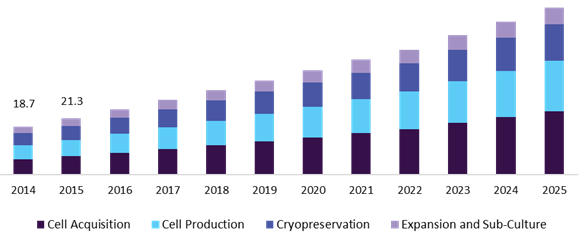
Fig: Market Analysis of Stem Cell Culture
The global Regenerative medicine market is expected to reach USD 38.70 Billion by 2021 from USD 13.41 Billion in 2016 at a CAGR of 23.6% from 2016 to 2021. The major factor driving the growth of this market, are government and private funding to support the development of regenerative medicine, rising prevalence of chronic diseases and genetic disorders, increase in global healthcare expenditure, and rapid growth in the aging population.
The report segments this market based on types, therapy, application, and regions. Based on types, the Regenerative medicine market is segmented into cell-based products and acellular products. In 2016, cell-based products expected to dominate the global Regenerative medicine market. The key drivers include the increasing awareness about stem cell therapy, growing funding for new stem cell lines, and development of advanced genomic methods for cell analysis.
Based on therapy, the Regenerative medicine market is segmented into cell therapy, gene therapy, tissue engineering, and immunotherapy. The cell therapy segment is expected to account for the largest share of this market, increasing funding from several agencies and private organizations for the research and development of cell therapies, growing inclination of the healthcare industry towards stem cell research, and increasing global awareness about the benefits of stem cell therapies.
Fig: Market Analysis of Global Regenerative Medicine
A Unique Opportunity for Advertisers and Sponsors at this International event:
Website URL: http://stemcell.geneticconferences.com/
UAS Major Universities which deals with Stem Cell Research
· University of Washington/Hutchinson Cancer Center
· Oregon Stem Cell Center
· University of California Davis
· University of California San Francisco
· University of California Berkeley
· Stanford University
· Mayo Clinic
Major Stem Cell Organization Worldwide:
· Norwegian Center for Stem Cell Research
· France, I-stem
· Stem Cell & Regenerative Medicine Ctr, Beijing
· Stem Cell Research Centre, Korea
· NSW Stem Cell Network
· Monash University of Stem Cell Labs
· Australian Stem Cell Centre
Companies working for Stem Cell:
|
Company |
Location |
Business Type |
|
Cynata Therapeutics |
Armadale, Australia |
Stem Cell Manufacturing Technology |
|
Mesoblast |
Melbourne, Australia |
Regenerative Medicine |
|
Activartis |
Vienna, Austria |
Dendritic Cell-Based Cancer Immunotherapy |
|
Aposcience |
Vienna, Austria |
Treatments composed of mixture of cytokines, growth factors and other active components |
|
Cardio3 Biosciences |
Mont-Saint-Guibert, Belgium |
Stem Cell Differentiation |
|
Orthocyte (BioTime) |
Alameda, CA |
Cellular Therapies |
|
Capricor |
Beverly Hills, CA |
Stem Cell Heart Treatments |
|
Life Stem Genetics |
Beverly Hills, CA |
Autologous stem cell therapy |
|
International Stem Cell |
Carlsbad, CA |
Proprietary Stem Cell Induction |
|
Targazyme |
Carlsbad, CA |
Cell Therapy |
|
DaVinci Biosciences |
Costa Mesa, CA |
Cellular Therapies |
|
Invitrx Therapeutics |
Irvine, CA |
Autologous Stem Cell Therapy, Therapeutic & Cosmetic |
References:
http://www.stemcell.com/en/Products/All-Products/EasySep-Mouse-CD25-Regulatory-T-Cell-Positive-Selection- Kit.aspx
- http://www.stemcell.com/en/Products/All-Products/EasySep-Mouse-CD25-Regulatory-T-Cell-Positive-Selection-Kit.aspx
- http://seekingalpha.com/article/1347281-investing-in-the-stem-cell-sector-an-overview
- http://mbbnet.umn.edu/scmap/scresearchmap.html
- http://biopharmguy.com/links/company-by-location-stem-cells.php
- http://www.marketwired.com/press-release/latest-research-shows-stem-cell-product-market-to-reach-6-billion-by-2016-1688406.htm
Past Conference Report
The success of the 7th Cell Science conference has given us the prospect to bring the gathering one more time. Conferences series llc LTD hosted the “8th World Congress and Expo on Cell and Stem Cell Research” during March 20-22, 2017 at Hotel Holiday Inn, Orlando Airport, Orlando, Florida, USA. The conference was focused on Cell Biology and Stem Cell Research studies with the theme “Explore and Exploit the Novel Techniques in Cell and Stem Cell Research”. The meeting engrossed a vicinity of comprehensive discussions on novel subjects like Stem Cell Therapy, Drugs and Clinical Developments, Stem Cell Transplantation, Current Research, Research and Development: Instrumentation, Genetics & Genomics, Cell based Therapies of Blood Diseases: Malignant and Non-Malignant & Cell Line Development, Novel Stem Cell Technologies, Cell Mechanics, Apoptosis and Cancer.
The conference was embarked with an opening ceremony followed by Keynote sessions and followed by series of lectures delivered by both Honourable Guests and members of the Keynote forum. The adepts who promulgated the theme with their exquisite talk were:
Paul J. Davis, Albany Medical College, USA
Haval Shirwan, University of Louisville, USA
Diana Anderson, University of Bradford, UK
Georg F. Weber, University of Cincinnati, USA
Bakhos A Tannous, Harvard Medical School, USA
Mahendra S.Rao, Q Therapeutics, Inc., USA
Best Poster Awardees:
Title: Effect of ionizing radiation on the proliferation of human embryonic stem cells
Irina V Panyutin, National Institute of Health, USA
Title: Manipulation of adult stem cells plasticity with modulators of chromatin modifying enzymes
Arshak R Alexanian, Cell Reprogramming & Therapeutics LLC, USA
Conferences series llc LTD hosted the “9 th annual conference on Stem Cell and Regenerative Medicine ” during Sep 25-26, 2017 Berlin, Germany. The conference was focused with the theme “Frontiers in Stem Cells & Regeneration Medicine”
The meeting engrossed a vicinity of comprehensive discussions on novel subjects like Stem cell, Stem cell therapy, Stem cell treatment, Somatic cell therapy, Tissue regeneration, Regeneration and therapeutics, Tumour cell science, Cell and gene therapy, Stem cell biomarkers, Stem cell nanotechnology, Stem cell bioinformatics, Biomaterial engineering.
The conference was embarked with an opening ceremony followed by Keynote sessions and followed by series of lectures delivered by both Honourable Guests and members of the Keynote forum. The adepts who promulgated the theme with their exquisite talk were:
Y James Kang, Sichuan 3D Bio-printing Institue, China
Title: Vascular tissue regeneration from implantation of 3D bio-printed stem cell grafts in rhesus monkeys
Viacheslav M Mikhailov, Institute of Cytology - Russian Academy of Sciences, Russia
Title: Cell transplantation as tool for foetuses growth regulation
Helen McGettrick, University of Birmingham, UK
Title: Adipogenic differentiation of MSC alters their immunomodulatory properties in a tissue-specific manner
Jasbir Rattu, CeutiQus Limited, UK
Title: Maximizing Integrated Quality (IQ) in Advanced Therapy Medicinal Products (ATMPs) and regenerative medicines
Luca Gentile, Fraunhofer Institute, Germany
Title: The Heartpatch, an alginate-based scaffold system for cardiac tissue engineering
Conferenceseries llc LTD offers its heartfelt appreciation to Organizing Committee Members, dexterous of field, various outside experts, company representatives and is obliged to other eminent personalities who interlaced with the organisation and supported the conference in every aspect, without which the conference would not have been possible.
Your rejoinder is our inspiration; keeping this motto in mind and being witnessed the triumph of Stem Cell Research-2017, Conference series llc LTD would like to announce the commencement of the “11th World Stem Cell And Biobanking” to be held in September 2018 at Tokyo, Japan. We welcome all the eminent researchers, students and delegate participants to take part in this upcoming conference to witness invaluable scientific discussions and contribute to the future innovations in the field of Cell Science Research.
For more details: http://stemcell.geneticconferences.com/
Let us meet again @ Stem Cell Biobanking 2018
Conference Highlights
- Stem cells
- Genetics and stem cell biology
- Cancer stem cells
- Tissue engineering
- Stem cell therapy
- Stem cell transplantation
- Stem cell niche
- Regenerative Medicine
- Adult stem cells
- Embryonic stem cells
- Stem cell apoptosis and signal transduction
- Computational biology in stem cells
- Epigenetics
- Biobanking
- Biobank ethics
- Stem cell in drug development
- Cell and gene therapy
- Stem cell biomarkers
- Stem cell nanotechnology
To share your views and research, please click here to register for the Conference.
To Collaborate Scientific Professionals around the World
| Conference Date | September 03-04, 2018 | ||
| Sponsors & Exhibitors |
|
||
| Speaker Opportunity Closed | Day 1 | Day 2 | |
| Poster Opportunity Closed | Click Here to View | ||
Special Issues
All accepted abstracts will be published in respective Our International Journals.
- Journal of Stem Cell Research and Therapy
- Journal of Cell Science and Therapy
- Journal of Stem Cell Research & Therapy
Abstracts will be provided with Digital Object Identifier by






